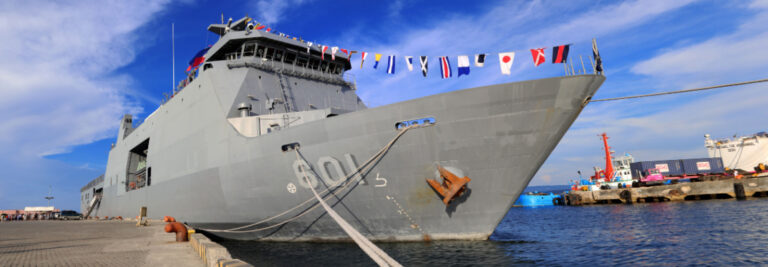Since Tsai Ing-wen and the Democratic Progressive Party’s (DPP) ascension to power in Taiwan this year, the People’s Republic of China (PRC) has done everything possible to display its displeasure with the island’s democratic choice for restrained cross-Strait ties. Most notably, communications between Beijing’s Taiwan Affairs Office (TAO) and Taipei’s Mainland Affairs Council (MAC), as well as their related semi-official mechanisms, have been halted.
TAO Director Zhang Zhijun (張志軍) made it clear that for official exchanges to resume, the so-called “1992 Consensus” and its related One-China principle must become the “common political foundation.” Notwithstanding, observers of China-Taiwan relations should not only pay attention to official statements made by the PRC’s state organs but also take note of actions taken by the Chinese Communist Party (CCP) to assert China’s sovereignty over Taiwan.
Specifically, the CCP’s International Department (CCP/ID; 中國共產黨中央對外聯絡部) is an important and yet often overlooked organ of the Party’s power and influence. While the department was once reserved for diplomacy with other foreign communist parties, the ID has re-identified itself over the past 20 years as a flexible and alternative channel to traditional state-to-state diplomacy. The department’s core objective is to use party-to-party contacts to help safeguard the country’s interests and facilitate state-to-state relations. Part of this work includes helping rectify foreigners’ “incorrect ideas” on the Party and country, including on issues of sovereignty.
With regards to Taiwan, the ID cooperates with other organs such as the CCP United Front Work Department to check Taiwan’s influence in regions where Taipei maintains official relations, such as Central America, the Caribbean, and West Africa. The department’s Taiwan role was especially prominent during the DPP presidency of Chen Shui-bian, as the CCP sought to leverage all channels of influence to stifle Chen’s independence-oriented policies. This history strongly suggests that the department will be utilized to help constrain the current DPP administration’s diplomatic efforts.
There is an additional reason to expect the ID’s influence in Taiwan policy to remain strong in the near-term: TAO head Zhang Zhijun is a career ID diplomat and worked his way up the ranks from 1975 to 2009 to become vice minister. Zhang has a reputation for being tough yet well-spoken and his leadership style has shaped the TAO’s policies. Although Tsai did not concede to China in her inaugural address regarding the so-called “1992 Consensus,” the TAO pledged to “advance cross-Straits exchanges and cooperation in various fields, deepen the integrated economic and social development of the two sides and improve the well-being and strengthen the close bond of people across the Straits.” To supplement the TAO’s own policies, Zhang is likely coordinating with his colleagues in the CCP/ID to apply pressure on Taiwan.
Since Tsai announced her presidential campaign in early 2015, the ID has secured declarations of support on Taiwan’s status from current high-level leadership in Comoros, the Czech Republic, Bulgaria, Grenada, Australia, Kazakhstan, Turkmenistan, Papua New Guinea, and the small Pacific island nation of Vanuatu, as well as from opposition parties in Cambodia, Mauritania, Armenia, Mauritius, and Samoa. It is worth noting that Vanuatu recognized Taipei in late 2004 for a short time; this explains why the ID has held four high-level meetings with the country since 2015. Each one reaffirmed Vanuatu’s support for the PRC’s One-China principle.
The CCP/ID also liaises with political parties in states that lack diplomatic ties with the PRC, most often with those that profess diplomatic support for Beijing’s definition of “One China.” Examples include ID contacts with Sao Tome and Principe’s Social Democratic Party, El Salvador’s Farabundo Marti National Liberation Front, Guatemala’s Patriotic Party and National Revolutionary Unity, Nicaragua’s Sandinista Liberation Front, St. Lucia’s Labour Party, and various parties in Paraguay, Panama, and the Solomon Islands. During the presidency of Chen Shui-bian, the CCP/ID sought to take advantage of the 2004 coup in Haiti, Taiwan’s diplomatic ally, organizing a January 2005 “goodwill delegation” to discuss establishing diplomatic relations with the installed provisional government.
Such liaison work continues in the current period. In January 2015, the CCP/ID hosted the China-CELAC Political Parties Forum for parties from Latin American and Caribbean countries, with the stated purpose of exploring ways to cope with common challenges. 27 parties across the region sent representatives to the forum, including from St. Lucia, Nicaragua, El Salvador, Honduras, and Panama—all diplomatic allies of Taiwan. CCP/ID Minister Song Tao (宋濤)used his address to the forum as an opportunity to stress the importance of China’s “core interests,” a reference that unequivocally includes Taiwan.
To supplement ID diplomacy, the department has an additional tool of influence to advance China’s stance on Taiwan: the Chinese Association for International Understanding (CAIFU/中國國際交流協會). As a CCP/ID front organization, CAIFU’s guiding principle is “letting the world understand China, and letting China understand the world.” More emphasis appears to be put on the former. Similar to its parent organization, CAIFU reaches out to various governments, political parties, and NGOs in order to “enhance mutual understanding and friendly cooperation.” It also publishes its own journal, International Understanding. CAIFU openly praised its own efforts to constrain Taiwan’s diplomatic maneuvering under Chen Shui-bian, citing its exchanges with countries that Beijing lacks ties with. The organization has continued to advance Beijing’s stance on Taiwan in more recent meetings, such as those with Sri Lanka and Albania.
The main point: The CCP’s International Department is an important and yet often overlooked organ of the Party’s power and influence. The current suspension of official cross-Strait communications and TAO Director Zhang Zhijun’s long career in the ID suggest that the department’s importance in Beijing’s Taiwan policies is likely to grow.
[1] David Shambaugh. “China’s ‘Quiet Diplomacy’: The International Department of the Chinese Communist Party.” China: An International Journal 5, no. 1 (March 2007): 26-54.
[2] Ibid, 44.
[3] Li Chengren. “Work Report Delivered at the 9th Meeting of the Chinese Association for International Understanding.” International Understanding, no. 3 (2003): 4-11.



